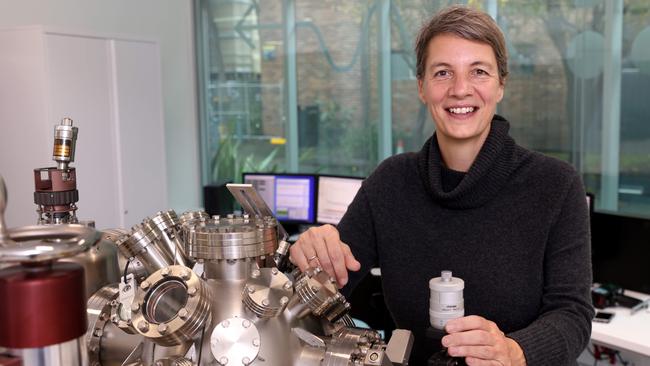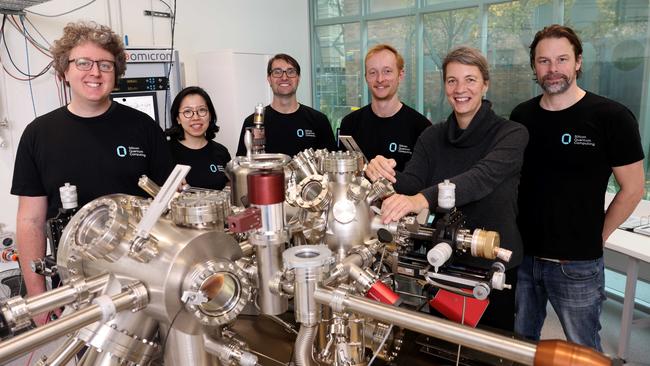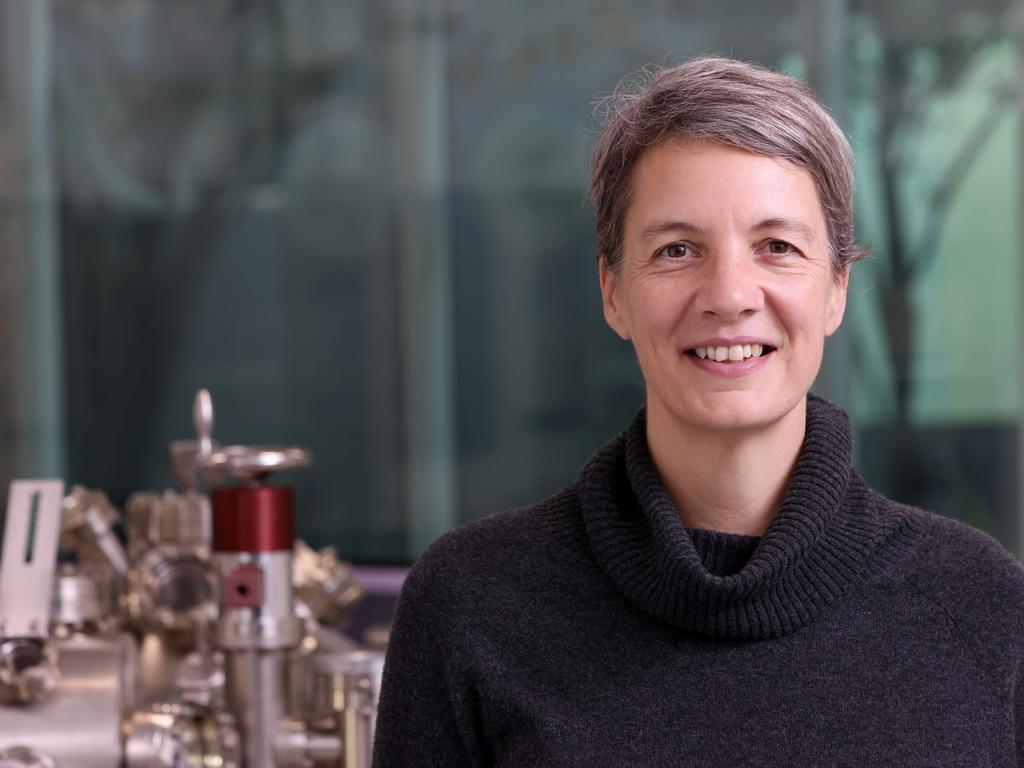Michelle Simmons raises $50m for start-up Silicon Quantum Computing
Former Australian of the Year Michelle Simmons has closed one of the largest start-up funding rounds of the year from investors including CBA, Telstra and the federal government.

Former Australian of the Year Michelle Simmons has closed one of the largest technology start-up raises of the year, pulling in $50.4m for her quantum computing firm Silicon Quantum Computing from investors including the federal government, Telstra, UNSW and CBA as it races to build the world’s first commercial-scale, silicon-based quantum computer.
In a Series A funding round priced at $1.75 per share SQC has more than doubled its valuation to $195.3m, up from $82.8m last year.
Professor Simmons, the 2018 Australian of the Year, said her company had grown from humble labs in the University of NSW into a hardware manufacturing hub for the quantum computing industry globally.
Quantum computers harness the laws of quantum mechanics to solve complex problems far faster than classical computers can. They could one day make life-saving drugs tailored for individual patients, accurately predict the weather and teach self-driving cars to be smarter and safer. Quantum computing is widely expected to be one of the breakthrough technologies of the coming decade.
“When we started the company we originally just planned to build a kind of hardware chip, and now we’ve gone to a complete full-stack company,” Professor Simmons said. “Over that period of time we’ve realised that we actually have all the capability in Australia to manufacture in Australia, so that’s been exciting.
“This funding now lets us get to some of the next big milestones and technical hurdles, one of those being logical qubits, and being able to do error correction on quantum processes. And we’ll be building out the team and continuing to expand the manufacturing base that we’ve built here in Australia.”

Quantum error correction protects information by encoding it across multiple physical qubits to form a ‘‘logical qubit’’ and is believed to be the only way to produce a large-scale quantum computer with error rates low enough for useful calculations.
Australia is well positioned to be a significant player in quantum, with SQC joining the likes of Q-CTRL, led by Sydney University physicist Mike Biercuk, which develops control systems for delicate quantum systems. Canberra-based Quantum Brilliance, using technology from the ANU, aims to build a room temperature quantum computer while QuintessenceLabs, also headquartered in Canberra, is building quantum-based cyber security tools. The funding comes after the federal government released its National Quantum Strategy in May, alongside the updated List of Critical Technologies in the National Interest, in which quantum technologies is a priority field.
“Australia is highly competitive and highly collaborative,” Professor Simmons said.
“I think internationally, when people look at Australia, they just see these phenomenal research companies coming out of universities in spaces where it’s globally competitive, so on the international stage they know that we’re a source of talent, and we’re a source of great companies and everyone wants to collaborate with us. We’ve got a fantastic international reputation.”
The CSIRO predicts that quantum computing will be a $6bn opportunity for Australia and will create 19,400 jobs over the next two decades. Professor Simmons said that raising capital was more expensive and slightly more laborious during the current technology downturn, but she “couldn’t be more excited” with the outcome.
“We’re a big believer in the potential of quantum computing to transform industries and solve some of world’s problems that challenge us today,” Telstra executive Kim Krogh Andersen said. “This potential and our belief in Michelle Simmons and the SQC team is why we’re a foundation investor and continue to support the innovative work they’re doing.”
Brendan Hopper, CBA’s chief information officer for technology, said the research being done by Professor Simmons’ team was of international significance. “As an early-stage investor in SQC, we can see the economic and business opportunities,” he said.




To join the conversation, please log in. Don't have an account? Register
Join the conversation, you are commenting as Logout